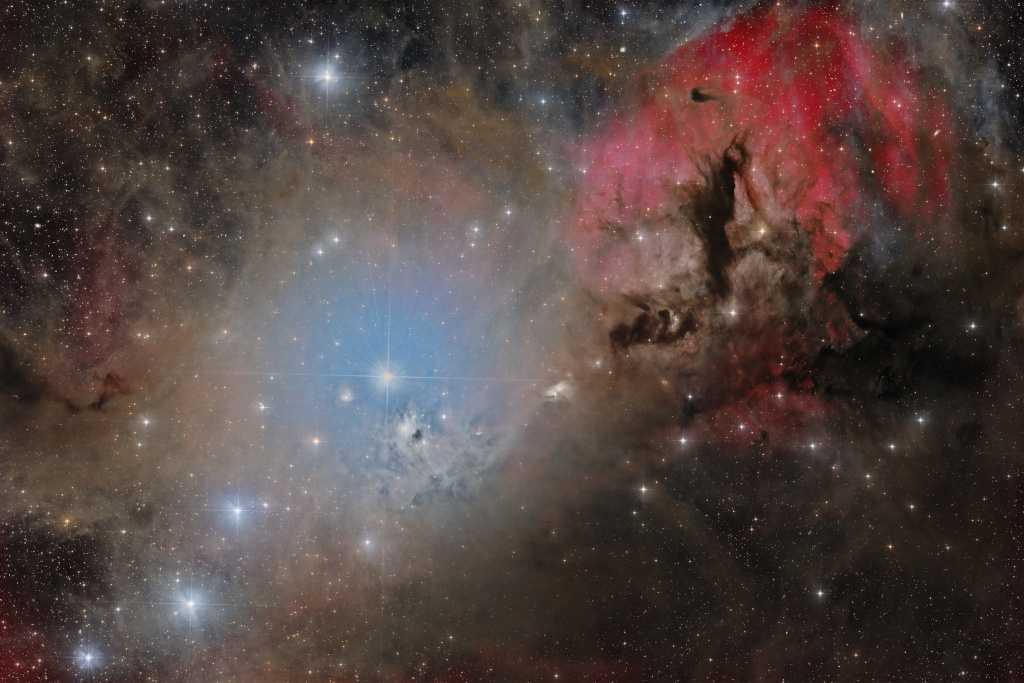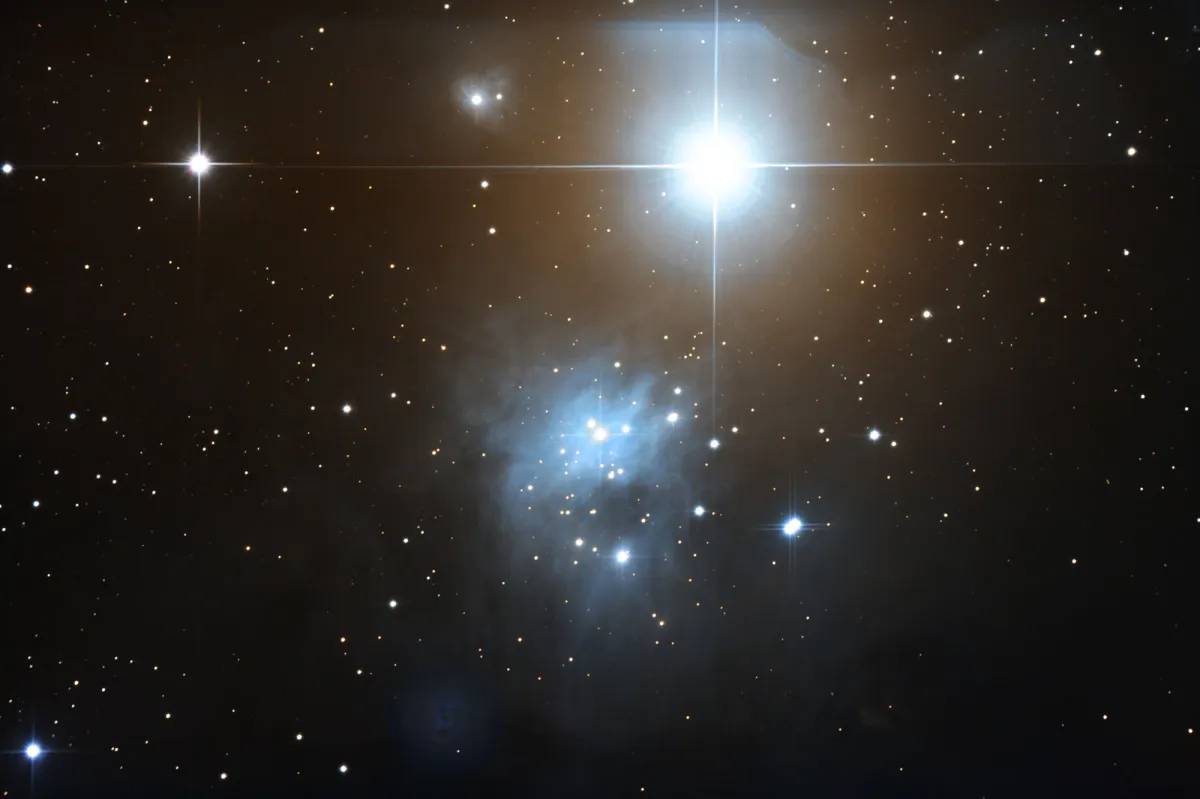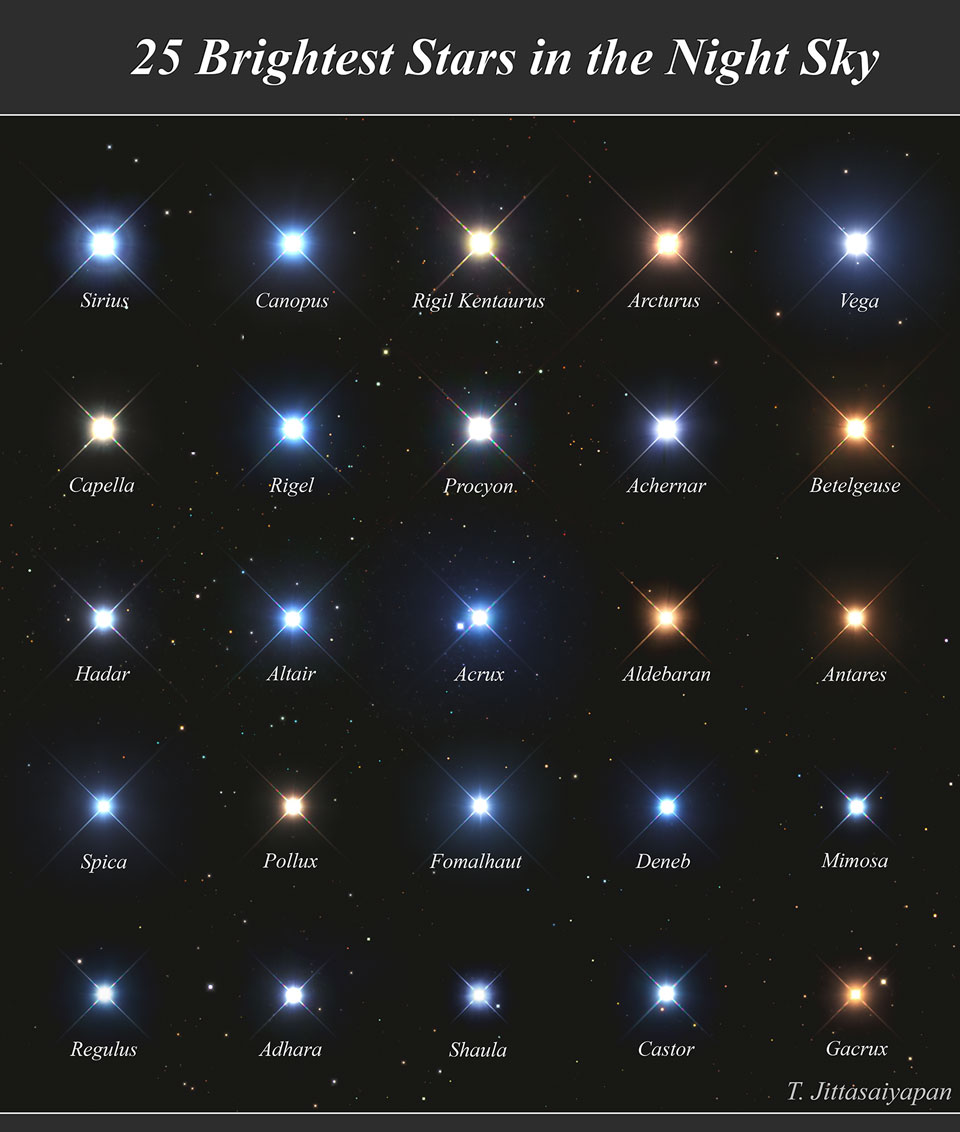Yes yes yes! I saw this image in the
Recent Submissions forum a few days ago and thought it was gorgeous!
It is above all the colors of this image that make me cheer. They are so lovely!!!


And this is what nebula images used to look like before narrowband imagery took over.
However, understanding what is going on in IC 348 is not so easy, so I'm going to post a few images that make it easier to get it - at least for me!

Let's start with this image by Radek Chromik:
Note that Omicron Persei, Atik, looks very bright in Radek Chromik's image, but it is relatively dim in the APOD.
But the image that really explains what is going on, at least to me, is this one:
To me, it really looks as if IC 348 is a perfect example of triggered star formation, where bright star Atik and its stellar wind and ultraviolet light is the trigger.
Let's look at two versions of the same picture of this region, one annotated and one not, to see what the different stars, clusters and nebulosities here are called:
Click on the image to read the annotations!
As you can see, if you click on the annotated image, the large red patch is called LBN 749. "LBN" means "Lynds Bright Nebula", cataloged by Beverly Lynds. There are two other LBNs in the annotated image, and IC 348 is one of them, cataloged as LBN 758! IC 348 has yet another name in the annotated image, vdB 19, which means nebula number 19 in Sidney van den Bergh's catalog of reflection nebulas.
Similarly, you can see three "LDN" patches, LDN 1468. LDN 1470 and LDN 1471. "LDN" means "Lynds Dark Nebula".
The prominent dark patch inside the reddish LBN 749 nebula is called Barnard 3. E.E. Barnard cataloged many dark nebulas.
One of the annotated stars is called V*V927 Per. The V* means that it is a variable star, and since it is immersed in nebulosity, and this is a region of star formation, my guess is that this is a newborn star that is still in the process of acting up.
HD 278942 is an interesting star. You can see that it is very red. Well, apparently is it very reddened, but how reddened is it? According to my software, HD 278942 is a star of spectral class F2, which would make its intrinsic color similar to Procyon. But according to Simbad Astronomical Data base, HD 278942 is spectral class O9.5 or B0, which would make its color similar to Acrux! Since it is located near the dark dust lanes of Barnard 3, I guess it could -
could, mind you! - be a very young, very reddened and still relatively dim star of spectral class B0, since newborn stars are in fact rather dim. The reddened color that we can see from this star is similar to (or a little redder than) Dubhe, one of the pointer stars in the Big Dipper.
All in all however, the IC 348 region is a fascinating and beautiful - indeed gorgeous! - part of the sky. But everything here apart from luminary Omicron Persei, which is itself reddened and not very strikingly bright to the eye, is really quite dim. It is a good thing that there are great astrophotographers who bring out the details and the beauty of this enchanting skyscape to us!
Ann
 IC 348 and Barnard 3
IC 348 and Barnard 3




